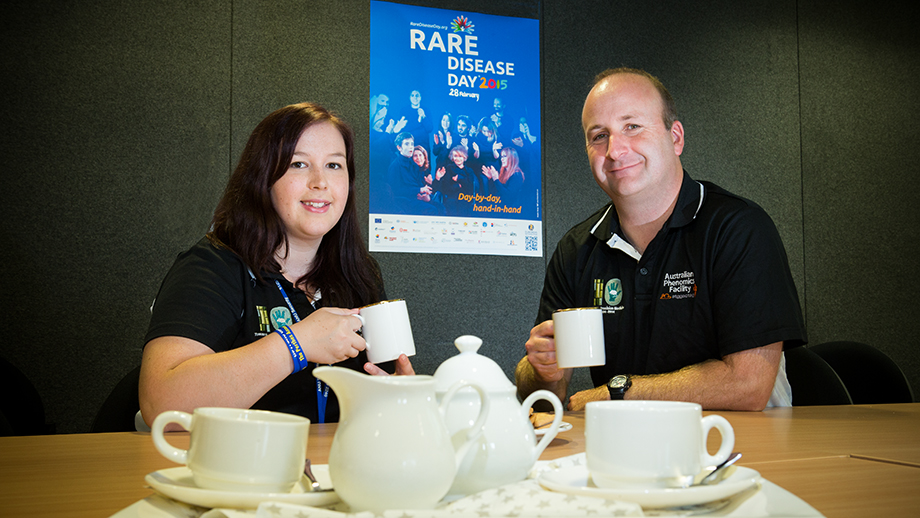Morning tea to raise the profile of rare disease
Kirilee Caston is living with a rare and invisible disease.
Kirilee, who works at the Australian Phenomics Facility (APF), is inviting members of the ANU community to a morning tea on Friday 27 February to raise awareness and funds for those living with a rare disease. The event will be in the foyer of the John Curtin School of Medical Research (JCSMR) from 10am.
Rare Diseases are defined as a condition, syndrome or disorder that affects fewer than one every 2,000 people. Rare Disease Day is celebrated each year on February 28.
Kirilee was seven when she was diagnosed with Perthes’ disease, a childhood disorder which affects the ball and socket joint of the hip.
She was put on anti-inflammatory drugs and had to give up sport, which was devastating for someone who loved being active.
At age nine, she was diagnosed with the same disease in the left hip and could no longer walk. She spent months in a wheelchair, and a year on crutches as the bones healed and she learned to walk again.
Kirilee has lived with constant pain and diminished flexibility which stops her doing day to day things many of us take for granted.
“I can’t run, jump, stand or sit for too long. While it stops me doing many things I try and push past it and make the most of what I can do,” she said.
“If I hadn’t got the disease I probably would be a dancer or gymnast right now.”
Dr Edward Bertram, Head of International Programs at the APF, said ANU researched a number of rare diseases.
“Last year the APF ran a small trial research project with Hunter Genetics to identify the causal gene variant in some rare disease patients,” Dr Bertram said.
“The APF has a unique international resource that provides models that researchers can use to study genetic causes of disease,” he said.
“Within this collection is our rare disease page where you will find information on the use of this collection for rare disease research in the international community.”
The Centre of Personalised Immunology in the JCSMR works on immune rare diseases such as lupus, sarcoidosis immunodeficiency and vasculitis.
Gold coin entry to the morning tea. All funds raised will go to The Perthes Association research and Rare Voices Australia.
What you might not know about rare disease:
· There are more than 8000 known rare diseases.
· 80 per cent of rare diseases affect children and most begin in childhood and continue throughout life.
· Although each disease is rare collectively they affect up to 10 per cent of the population.
· Neurological and intellectual disabilities occur in about half of all cases regardless of disease type and lead to loss of independence and opportunities.
· Obtaining a diagnosis is often difficult and delayed
· Most rare diseases have no cures.

